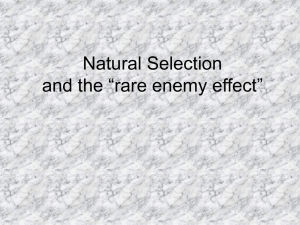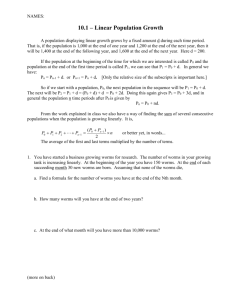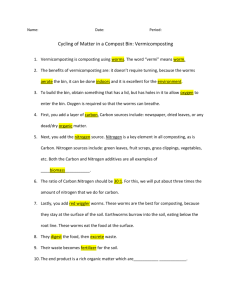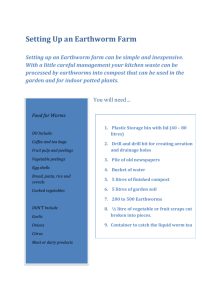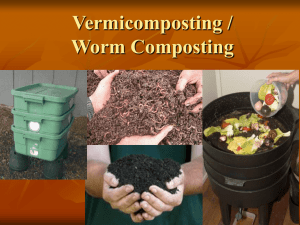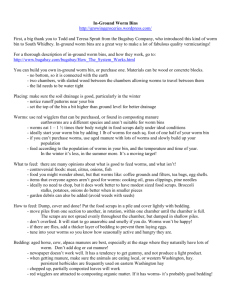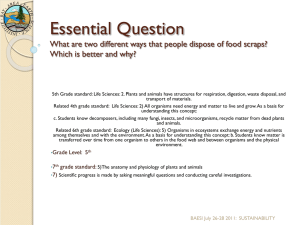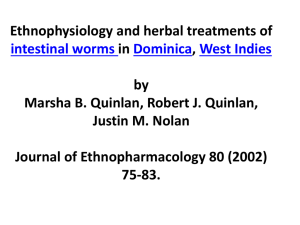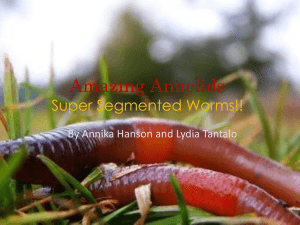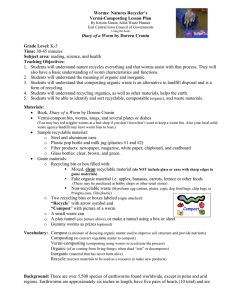HERE - Outback WoodWorks
advertisement
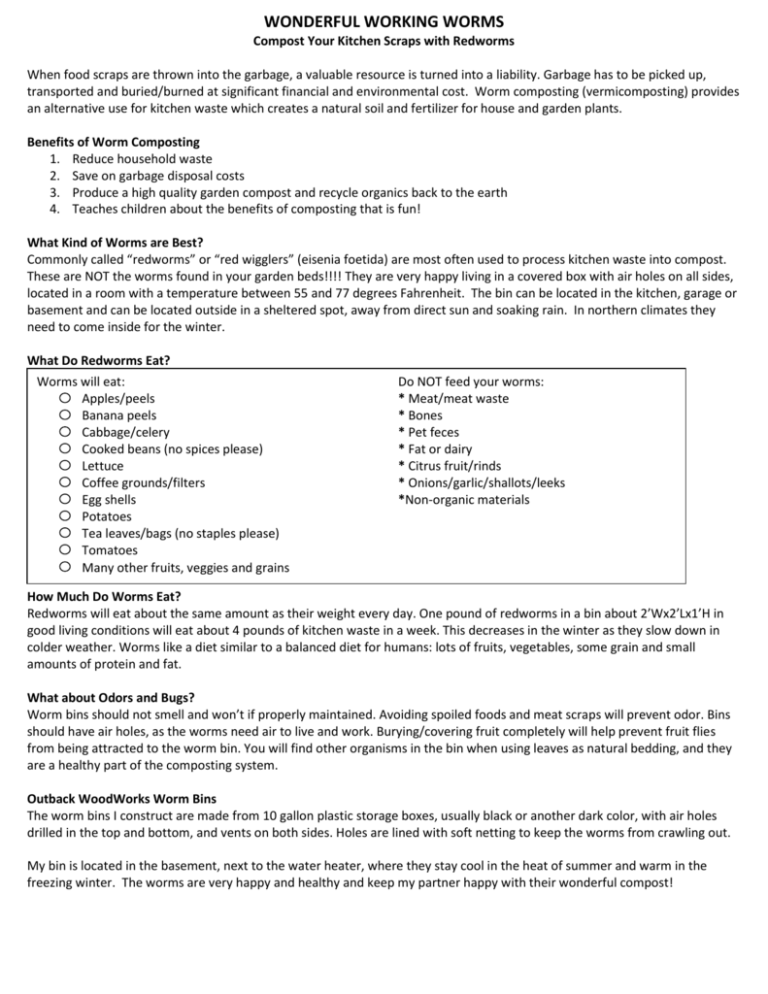
WONDERFUL WORKING WORMS Compost Your Kitchen Scraps with Redworms When food scraps are thrown into the garbage, a valuable resource is turned into a liability. Garbage has to be picked up, transported and buried/burned at significant financial and environmental cost. Worm composting (vermicomposting) provides an alternative use for kitchen waste which creates a natural soil and fertilizer for house and garden plants. Benefits of Worm Composting 1. Reduce household waste 2. Save on garbage disposal costs 3. Produce a high quality garden compost and recycle organics back to the earth 4. Teaches children about the benefits of composting that is fun! What Kind of Worms are Best? Commonly called “redworms” or “red wigglers” (eisenia foetida) are most often used to process kitchen waste into compost. These are NOT the worms found in your garden beds!!!! They are very happy living in a covered box with air holes on all sides, located in a room with a temperature between 55 and 77 degrees Fahrenheit. The bin can be located in the kitchen, garage or basement and can be located outside in a sheltered spot, away from direct sun and soaking rain. In northern climates they need to come inside for the winter. What Do Redworms Eat? Worms will eat: Apples/peels Banana peels Cabbage/celery Cooked beans (no spices please) Lettuce Coffee grounds/filters Egg shells Potatoes Tea leaves/bags (no staples please) Tomatoes Many other fruits, veggies and grains Do NOT feed your worms: * Meat/meat waste * Bones * Pet feces * Fat or dairy * Citrus fruit/rinds * Onions/garlic/shallots/leeks *Non-organic materials How Much Do Worms Eat? Redworms will eat about the same amount as their weight every day. One pound of redworms in a bin about 2’Wx2’Lx1’H in good living conditions will eat about 4 pounds of kitchen waste in a week. This decreases in the winter as they slow down in colder weather. Worms like a diet similar to a balanced diet for humans: lots of fruits, vegetables, some grain and small amounts of protein and fat. What about Odors and Bugs? Worm bins should not smell and won’t if properly maintained. Avoiding spoiled foods and meat scraps will prevent odor. Bins should have air holes, as the worms need air to live and work. Burying/covering fruit completely will help prevent fruit flies from being attracted to the worm bin. You will find other organisms in the bin when using leaves as natural bedding, and they are a healthy part of the composting system. Outback WoodWorks Worm Bins The worm bins I construct are made from 10 gallon plastic storage boxes, usually black or another dark color, with air holes drilled in the top and bottom, and vents on both sides. Holes are lined with soft netting to keep the worms from crawling out. My bin is located in the basement, next to the water heater, where they stay cool in the heat of summer and warm in the freezing winter. The worms are very happy and healthy and keep my partner happy with their wonderful compost!
